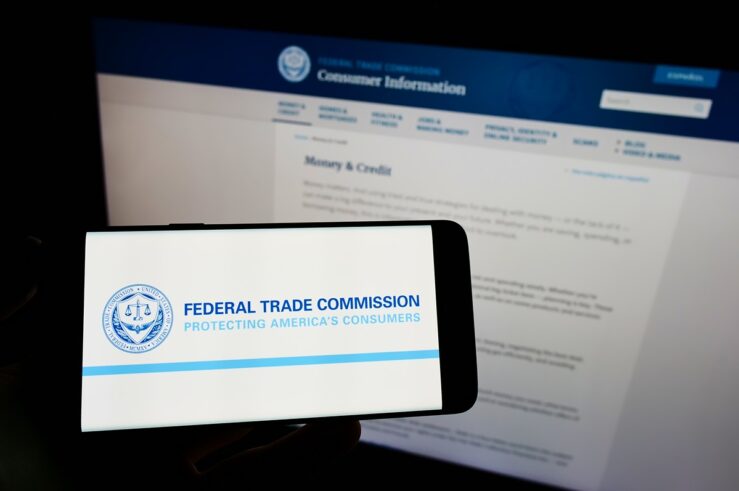Showing results for: “"whole foods"”
Antitrust at the Agencies Roundup: Supply Chains, Noncompetes, and Greedflation
The big news from the agencies may be the lawsuit filed today by the U.S. Justice Department (DOJ) and 16 states against Apple alleging monopoly maintenance in violation of Section 2 of the Sherman Act. It’s an 86-page complaint and it’s just out. I’ll write more about it next week. Two quick observations: First, the ... Antitrust at the Agencies Roundup: Supply Chains, Noncompetes, and Greedflation
Antitrust at the Agencies Roundup: The Joint FTC/DOJ Guidelines to Nowhere (or Nowhere Good) Edition
The FTC and DOJ have done it: on July 19 they released the long awaited (or dreaded) draft merger guidelines, which . . . well, could have been worse, given current agency leadership, but could have been better (as demonstrated by the certainly imperfect, but still better, 2010 guidelines they replaced). Jumping on the agencies’ ... Antitrust at the Agencies Roundup: The Joint FTC/DOJ Guidelines to Nowhere (or Nowhere Good) Edition
Antitrust Populists Don’t Seem to Care About the Poor
Antitrust populists like Biden White House official Tim Wu and author Matt Stoller decry the political influence of large firms. But instead of advocating for policies that tackle this political influence directly, they seek reforms to antitrust enforcement that aim to limit the economic advantages of these firms, believing that will translate into political enfeeblement. ... Antitrust Populists Don’t Seem to Care About the Poor
Alston Decision Shows Consumer Welfare Standard Isn’t Broken
From Sen. Elizabeth Warren (D-Mass.) to Sen. Josh Hawley (R-Mo.), populist calls to “fix” our antitrust laws and the underlying Consumer Welfare Standard have found a foothold on Capitol Hill. At the same time, there are calls to “fix” the Supreme Court by packing it with new justices. The court’s unanimous decision in NCAA v. ... Alston Decision Shows Consumer Welfare Standard Isn’t Broken
The Case Against Google Advertising: What’s the Relevant Market and How Many Are There?
U.S. antitrust regulators have a history of narrowly defining relevant markets—often to the point of absurdity—in order to create market power out of thin air. The Federal Trade Commission (FTC) famously declared that Whole Foods and Wild Oats operated in the “premium natural and organic supermarkets market”—a narrowly defined market designed to exclude other supermarkets ... The Case Against Google Advertising: What’s the Relevant Market and How Many Are There?
The Furman Report is a Flimsy Basis for a New UK Competition Policy
Earlier this year the UK government announced it was adopting the main recommendations of the Furman Report into competition in digital markets and setting up a “Digital Markets Taskforce” to oversee those recommendations being put into practice. The Competition and Markets Authority’s digital advertising market study largely came to similar conclusions (indeed, in places it ... The Furman Report is a Flimsy Basis for a New UK Competition Policy
Uber/Grubhub: Pandemic Profiteering, Merger Moratoriums, and Rising Concentration … Or Not
Earlier this week, merger talks between Uber and food delivery service Grubhub surfaced. House Antitrust Subcommittee Chairman David N. Cicilline quickly reacted to the news: Americans are struggling to put food on the table, and locally owned businesses are doing everything possible to keep serving people in our communities, even under great duress. Uber is ... Uber/Grubhub: Pandemic Profiteering, Merger Moratoriums, and Rising Concentration … Or Not
Private Antitrust: What Hipsters Can Learn from Hulk Hogan
Antitrust populists have a long list of complaints about competition policy, including: laws aren’t broad enough or tough enough, enforcers are lax, and judges tend to favor defendants over plaintiffs or government agencies. The populist push got a bump with the New York Times coverage of Lina Khan’s “Amazon’s Antitrust Paradox” in which she advocated ... Private Antitrust: What Hipsters Can Learn from Hulk Hogan
Is Amazon Guilty of Predatory Pricing?
In 2014, Benedict Evans, a venture capitalist at Andreessen Horowitz, wrote “Why Amazon Has No Profits (And Why It Works),” a blog post in which he tried to explain Amazon’s business model. He began with a chart of Amazon’s revenue and net income that has now become (in)famous: Source: Benedict Evans A question inevitably followed ... Is Amazon Guilty of Predatory Pricing?
Elizabeth Warren wants to turn the internet into a literal sewer (service)
Near the end of her new proposal to break up Facebook, Google, Amazon, and Apple, Senator Warren asks, “So what would the Internet look like after all these reforms?” It’s a good question, because, as she herself notes, “Twenty-five years ago, Facebook, Google, and Amazon didn’t exist. Now they are among the most valuable and ... Elizabeth Warren wants to turn the internet into a literal sewer (service)
Amazon-Whole Foods symposium wrap-up
On Tuesday, August 28, 2018, Truth on the Market and the International Center for Law and Economics presented a blog symposium — Is Amazon’s Appetite Bottomless? The Whole Foods Merger After One Year — that looked at the concerns surrounding the closing of the Amazon-Whole Foods merger, and how those concerns had played out over ... Amazon-Whole Foods symposium wrap-up
The Amazon-Whole Foods merger: Natural and organic competition in the evolving grocery industry
What actually happened in the year following the merger is nearly the opposite: Competition among grocery stores has been more fierce than ever. “Offline” retailers are expanding — and innovating — to meet Amazon’s challenge, and many of them are booming. Disruption is never neat and tidy, but, in addition to saving Whole Foods from potential oblivion, the merger seems to have lit a fire under the rest of the industry. This result should not be surprising to anyone who understands the nature of the competitive process. But it does highlight an important lesson: competition often comes from unexpected quarters and evolves in unpredictable ways, emerging precisely out of the kinds of adversity opponents of the merger bemoaned.










